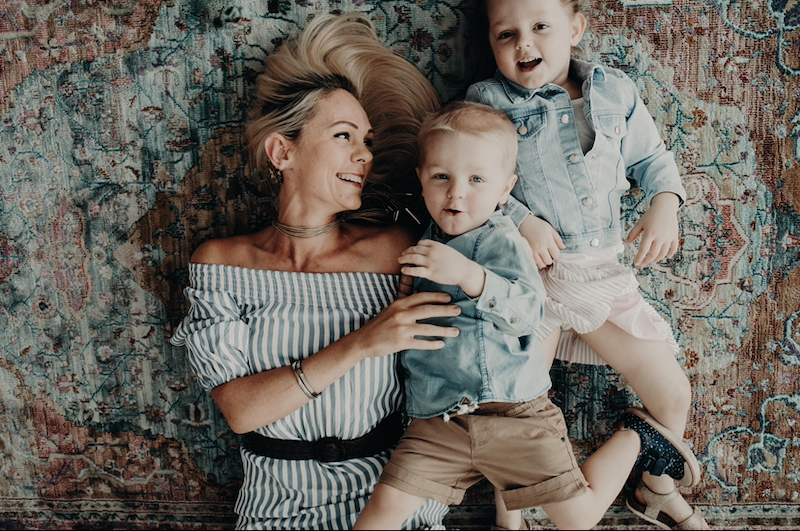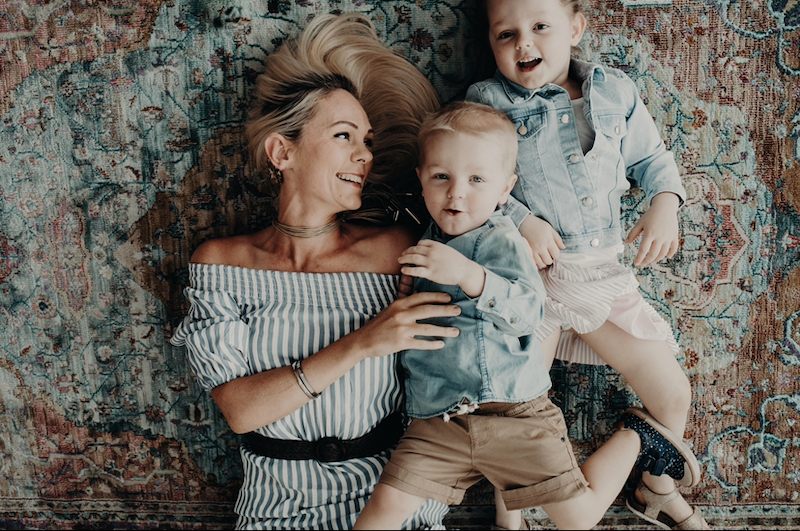When COVID-19 arrived in Australia, I was 20 weeks into my third pregnancy, making it one of my biggest challenges yet.
It was very much so a planned pregnancy and a wanted and adored little person. However, with the arrival of the coronavirus also came the beginning of one of my biggest challenges yet.
Let me set the scene by saying that my first two pregnancies were pretty straightforward. I received all the usual support, with an abundance of appointments and check-ins on my and my children’s health.
My first pregnancy, like for most new mothers, was daunting, purely because of the unexplored territory that came with childbirth and motherhood. It’s your first child, the first time you carry and grow a human, and it’s a little overwhelming. My point is, even before a pandemic, it’s tricky to take in all the information and keep up with everything involved with pregnancy.
By the time my third pregnancy rolled around, I was more prepared. I had learnt a thing or two about the usual process and I felt like I was in charge.
I never expected to develop perinatal anxiety and depression (PNDA). I’ve always been a fast-paced, high-energy go-getter and while motherhood was hard, I thrived as a parent. I exercised every day, I juggled my family life, work and social life with ease, and challenges turned me into the most confident version of myself.
So when I experienced my first anxiety attack, with my children at a shopping centre, I felt paralysed. My strong-minded nature disappeared, and I sunk into this unknown state, switching off physically and emotionally from my family and from my pregnancy.
Falling sick around Christmas, the arrival of a pandemic threw me into a severe and sudden wave of antenatal anxiety. Within weeks of this pregnancy, all my appointments were rescheduled, my follow-ups were frozen and I was attending my appointments alone with only my bump for company.
Being forced into lockdown felt like my chances of treating my perinatal depression were ripped away and my mental wellbeing deteriorated. I felt as though I was about to face a war to keep this child, and myself, alive. This was a sickness I hadn’t known existed and I didn’t know if recovery was possible, so I started to research, looking for answers and looking for help along the way.

Aviva and her two oldest children.
When I found the Gidget Foundation, everything changed. Not only could I get in to see my new psychologist in a time of absolute need, but I was promised she had perinatal experience; it was like talking to someone who actually got it. Their national telehealth program, Start Talking, became absolutely vital for my recovery. Not only did this happen in the midst of global chaos, but I fell sick over the New Year holidays. There was a six-week waiting period for everything and I didn’t know how I was going to survive it all without help. I felt like the medical system wasn’t at all prepared for the adjustments necessary for the pandemic.
Not ever experiencing mental illness before, PDNA has taken a great toll on me. Being able to navigate this with a perinatal psychologist over the phone was a big influence on my continuous healing process. Finding a supportive community took some of the pressure off being so vulnerable to the virus and ongoing pandemic, but childbirth in a life of lockdown was still daunting.
While different to my first two, my birth experience was still beautiful. However back on the ward, the post-birth bubble was consumed with all things COVID-19: We weren’t allowed any visitors, we weren’t allowed out of the rooms once in them, we weren’t allowed to be sick.
Obsessing about everything to create a perfectly healthy environment for the hospital and the baby was an intense pressure, even without a mental illness. My midwife was unbelievably supportive, advocating for me where she could, helping me when things looked a little scary. She managed to keep things in line with what my mental health was needing at the time, and everything went smoothly from a medical perspective. I got the help I needed and the help I deserved in a fashion that didn’t compromise the safety of myself or my baby.
Everything I needed at the time was taken care of; it was like a little miracle I prayed for while at my worst. I just wish I had made connection with the Gidget Foundation much earlier into falling sick. Having someone trained in perinatal psychology and the availability, kindness and integrity of the support provided helped me to get through the awful experience and stress of pregnancy in a pandemic.
My research online made me realise how common perinatal depression and anxiety is and how many people are suffering, whether they realise it or not. Going to great lengths to find information and seek help for myself as I struggled with PNDA, it was the community of Gidget Foundation that got me through it in the end and has pushed me to a place of recovery. Being pregnant during a pandemic is horrific and the trauma of falling sick on top of that is something I will be forced to face for years to come.
The pandemic has shoved us into unknown territory and as mothers, there’s some things we need to remember:
- This isn’t a time to be superwoman, this isn’t a time for a strict plan on anything.
- Getting through this incredibly stressful time should be as much as you take on, and that’s okay.
- Take your to-do list from 400 items and bring it down to four.
- Delegate out, talk it out, ask for help.
- Thinking about getting extra help around the house? Do it.
- Contemplating calling in as much help as humanly possible within COVID restrictions? Do it.
- Mentally needing rest and letting the kids watch a mindless movie to preserve yourself? Do it.
- Keep doing it, and any droplet of guilt you experience, show it where the door is.
This is a time to let go of all your ideas of perfectionism and what motherhood is meant to look like, lock them in a cupboard and keep them there for as long as you need. The fact is that things need to be looked at differently in order to survive mentally. You may not believe this right now, and I didn’t when I was told, but you will survive this experience, and so will your baby.
Stay safe, advocate for yourself and remove every ounce of pressure from your life. Overall, be extremely kind to yourself, like never before.
WIN CHILDREN’S BOOKS!
Submit a personal story on your parenting journey, thoughts or experience and if we use your story, we’ll send you a selection of children’s books! Write to us at editorial@mumsatthetable.com.
How helpful was this article?
Click on a star to rate it!
0 / 5. 0
Be the first to rate this post!
Aviva Kippax
Related posts
Subscribe
Receive personalised articles from experts and wellness inspiration weekly!

